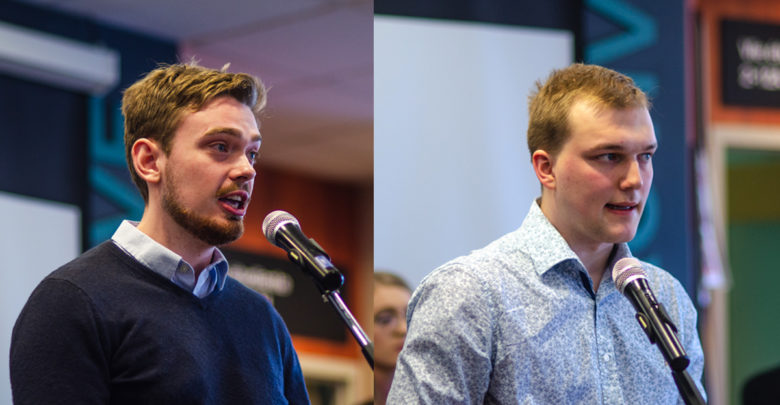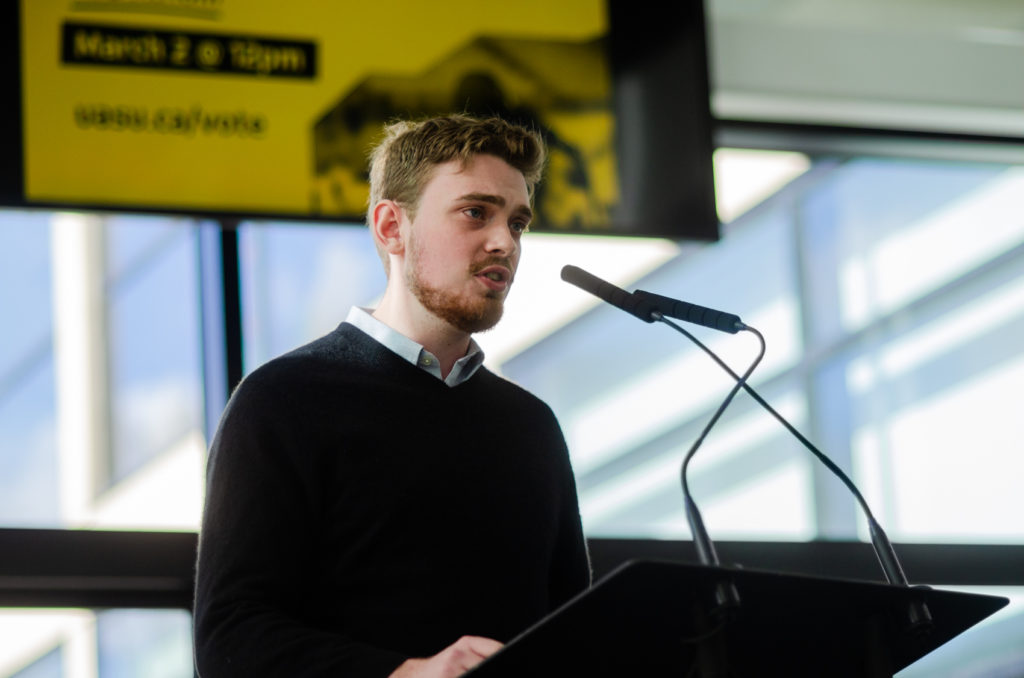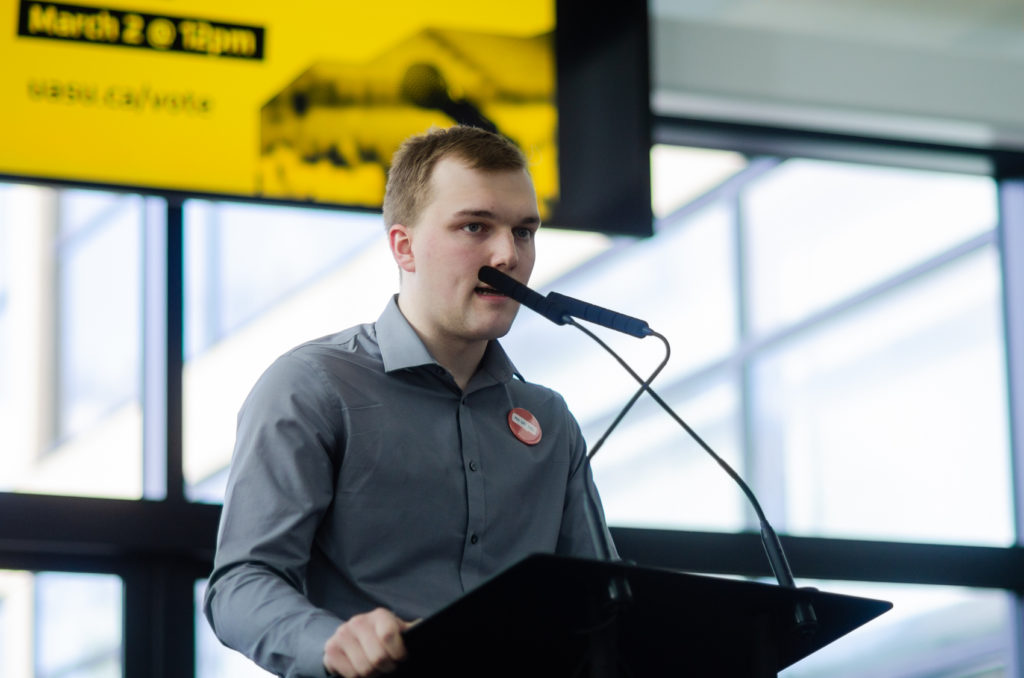Bite the Ballot: Vice-President (External)
How should the student body vote, and how will they?
 Helen Zhang
Helen ZhangThis year, fourth-year political science student and speaker of Students’ Council, Robert Bilak, is running against fourth-year political science student and current Board of Governors representative Rowan Ley. Both are committed to fighting back against government cuts, but who will, and should, win?

Rowan Ley
Rowan Ley has had a consistent motto for what he would like to see if he wins this election: a grassroots, consensus-based student led movement. Ley is a passionate speaker whose platform speaks to students who are worried about their future at postsecondary institutions.
Ley’s plan to fight back against the provincial government’s cuts utilizes several methods, including getting ordinary Albertans on the university’s side, creating a public engagement campaign, and consulting student representatives and faculty groups to empower them to get involved in advocacy. He also wants to show the provincial government that investing in deferred maintenance is a short-term cost that will stop financial liability later.
Considering the massive budget cuts and tuition increases over the next several years, these plans are needed now more than ever. Throughout the campaign, Ley was vocal about changing how protests are done, and he called previous protests at the legislature ineffective. He plans to do this by making a plan early, while collaborating with students around the province and hiring an organizing coordinator. Since students are a minority in this fight, sticking together is our best chance of winning.
Ley is committed to a diplomatic approach to student led movements. He wants to help mend relationships with ASEC, which is perhaps the most difficult campaign promise to follow through on, as well as hire an Indigenous research coordinator to help decide how Indigenous students want to be represented by the provincial government. Mental health is an important point to Ley, as he plans to advocate for the renewal of the mental health grant and more funding per student, especially for international students and students on satellite campuses.
Much of Ley’s statements made throughout the election were the same, but it was clear that he believes in his platform, and has a robust plan to follow through on it.

Robert Bilak
Robert Bilak has said “collaboration leads to more collaboration” throughout his campaign. It isn’t surprising then that he wants to reach out to Albertans through collaborating with organizations like Students Not Silent and the Council of Alberta University Students (CAUS) through public advertising in television and newspapers. Bilak would prioritize provincial advocacy over national advocacy, and would accomplish this by hiring an organization coordinator who would serve the same purpose. Bilak has also said that working with student representative associations is important in advocacy efforts.
Unlike Ley, if Bilak was unable to work with groups who did not hold student interests at heart, he would defer to the Students Not Silent movement. To Bilak, it seems, it’s better not to have allies than to have uncertain ones. Bilak stated that protests should be held “immediately prior” to a budget, so the government knows that the SU is ready to act, which could make the government think twice before anything is released. He added that they could be better understanding what’s happening at the grassroots level. He would also work with various groups on campus to get a better understanding of what they want. His main critique of the Students Not Silent movement is that they do not have a singular goal, and that they should have a “clear” ask.
Bilak argues the SU should work to facilitate summer job programs in order to help students find jobs so they can pay for school, and would not approach the provincial government for aid. Instead, he would make an effort to expand the Canada Summer Jobs program because he believes the current Liberal government may be more willing to finance summer job programs. Bilak wants students to be able to be employed for a year rather than just the summer, and to make student employment easier to find.
As for the question of deferred maintenance, Bilak called current funding “a drop in the bucket,” and argued that the best way to get aid from the provincial government is to frame it as debt. He would also like to decrease carbon emissions by working with the Green Infrastructure group. He responded to the increases in tuition as raising the barriers to post-secondary, and that by funding students and the university, the government would ultimately be creating more skilled workers and a competitive job market. This approach is pragmatic, possibly robotic, and may be the only language the provincial government speaks.
Who will win, and who should win?
While Bilak may have a better chance in gaining aid from the provincial government by speaking their language, as opposed to Ley’s approach of protests, I do think Ley will win, given his confidence as a public speaker and passionate stance on student advocacy.
While I admire the platforms of both candidates, I do believe Bilak would be able to work better with the provincial government. However, Ley should win, because the SU needs someone to fight for students advocacy and change how protests are currently being conducted.




